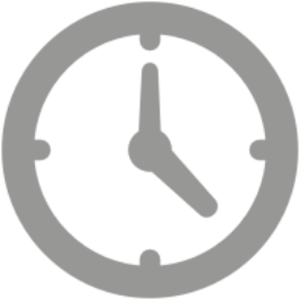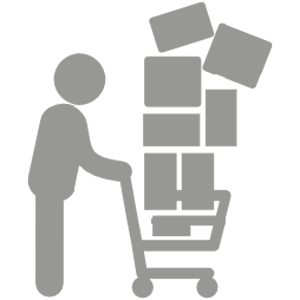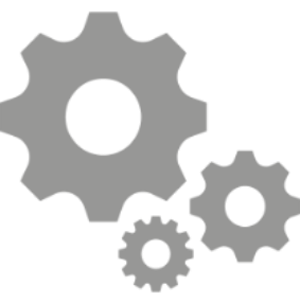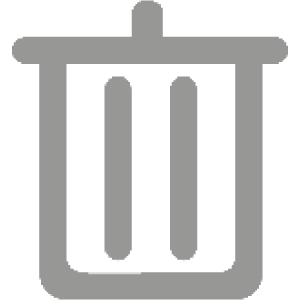T.I.M.W.O.O.D. - Foundations of a Lean Enterprise
“The most dangerous kind of waste [in a business system] is the waste we do not recognize.” – Shigeo Shingo
The key to developing a successful and sustainable business is to maintain a tireless focus on strategically increasing profitability while improving the quality of products or services, and ultimately customer loyalty. To help businesses assess their performance, improve efficiency, and reduce cost, many businesses have shifted focus to running a lean enterprise. “Lean” refers to a systematic methodology of evaluating a business process for “Muda” (the Japanese word for waste) and subsequently removing those wastes. If you’ve wondered what Lean is and how it might apply to your business this introductory article is for you.
Waste in Business Processes.
Although, it goes without saying that every business should seek to eliminate as much waste as possible, some forms of waste are necessary. Lean is focused on eliminating unnecessary waste from business processes. Specifically, Lean concerns itself with what it refers to as, “The Seven Deadly Wastes” which include, Travel, Inventory, Motion, Waiting, Overproduction, Overworking, and Defects. To better remember these concepts, the acronym “T.I.M.W.O.O.D.” is often used. An overview of these common forms of waste is provided below:
Travel refers to the unnecessary movement of objects or personnel for any purpose that does not add value to the final product. Excessive travel has a negative impact on production time, costs, and ultimately profitability. Time unnecessarily wasted transporting objects could be put to better use working on another phase of production or the next product, resulting in reduced production times, lower labor requirements, and lower expenses. Additional pitfalls associated with excessive travel include an increased risk of damage, inefficient use of labor, inefficient use of facility space, and added costs for handling machinery and equipment.
Inventory is a form of waste that is concerned with overstocking of raw materials, works in progress, or finished goods. Maintaining excessive inventories on-hand does not typically add value, but is commonly employed to aid businesses in being better prepared for unexpected demand and/or delays in the supply chain. These inventories take up storage space that could be utilized for more productive purposes. Additionally, when excessive inventory is held, it must be properly monitored (inventoried) and maintained to prevent damages or theft. Additionally, holding inventory runs the risk of depreciation, obsoletion, or spoilage.
Motion refers to the unnecessary movements of employees and/or machinery. Since unnecessary motion requires added time without adding value to the final product, it is best to develop efficient systems and processes which eliminate unnecessary motion. In addition to waste, unnecessary movements may also increase production time and can even lead to injuries.
Waiting is one of the most common and substantial forms of waste. Any time an employee is idle (i.e. the employee isn’t producing or transporting a product), the company is wasting money. The best way to prevent waste associated with waiting is to develop a balanced system so that the production process flows continuously to keep all employees occupied with valued-added activities.
Overproduction is a waste caused by producing more than what is needed to satisfy customer demand. In addition to tying up valuable resources (labor and raw materials which could otherwise be utilized producing in-demand products), overproduction can cause a domino effect for other wastes including, excess travel, inventory, motion, and possibly scrap.
Overworking a product (i.e. processing the product more than required) requires additional time and expenses, which customers are not willing to pay for. Examples include applying an extra coat of paint, mixing a product for an extra 10 minutes, or allowing a product to dry/cure longer than necessary. Overworking a product increases cost without adding value.
Defects refer to waste generated by defects and defective products. Defects can either lead to rework or scrap (often at an additional expense) if the defects cannot be corrected. Both pitfalls may require additional travel, labor, and material in addition to increased production time and costs. If defective products are shipped, additional expenses may be incurred via warranty claims, shipping / replacement costs, and lost good will.
Scrap, while not ordinarily included in the traditional T.I.M.W.O.O.D. acronym, is a common waste and refers to anything that is discarded after the production process is complete. Scrap can be reduced or eliminated by ordering materials in different sizes, cutting materials in different patterns, or using the scrap for other, secondary purposes such as compressing sawdust with glue to make particleboard. Scrap waste cuts into profitability since purchased materials are not used / must be disposed of, often at an additional cost.
By recognizing functions or procedures that could potentially be a business can reduce expenses and increase profitability. All employees should be educated to recognize waste and encouraged to report it or take corrective measures to address it.
About MBC:
Midwest Business Consulting is a veteran-owned business specializing in helping clients achieve exceptional results through optimized operations and continuous improvement initiatives. To learn more about reducing waste and improving your organization’s operations and profitability call MBC at 708-571-3401 or visit us at www.getMBC.com.
Back to top
Download this article in PDF format
Back to Blog










